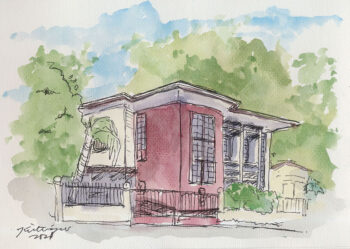GENERAL SANTOS CITY, January 5, 2016 – The six-year administration of President Benigno Simeon C. Aquino III must be “good”. Two lady senators, one a presidential candidate and the other a daughter of another presidential aspirant could only hope that the next administration after the May 2016 election would be “better” (Philippine Daily Inquirer, January 2, 2016: 2 senators hope for better, kind gov’t in 2016). Why just hope for the better? Note well: They did not “swear for the best”.
Senator Grace Poe, the presidential candidate, in an e-mailed statement, said “We emerge from 2015 with more courage, more solid faith, more concern for our fellowmen and with greater resolve to achieve more. The Filipinos here or abroad deserve more than the promise of good governance. It is time that this be translated into actual good service. It is time for their promised share of the social payback from the much vaunted economic reforms.”
This was a political statement, not a New Year’s message.
Senator Nancy Binay, daughter of candidate Vice President Jejomar Binay, sees people as looking forward to a “brighter and better 2016 — for a new beginning will build a progressive and compassionate Philippines: a nation of peace, prosperity and dignity” and wished: “May 2016 usher in a new and kind-hearted government that will lead our country to new heights.”
Even if the Star did qualify so, this must be a New Year’s message cum political statement.
But, what more are they asking? In a report, The Philippine Star (January 2, 2016: Noy: Straight path policy is Philippine’s roadmap to First World status), cited the President expressing his “belief that his straight path policy is the only way for the Philippines to be a fully developed country by 2030” and quoting from his New Year’s Message:
“The daang matuwid (straight path) is a roadmap that will catapult us into First World status and make us a $1-trillion economy by the year 2030. This possibility encourages me and the rest of government to faithfully pursue our tasks in the last six months of my administration. The same thought should guide us as we choose our leaders this coming election: to maintain the upward trajectory of our growth and keep our nation on the daang matuwid.”
Comparing his administration with his predecessor’s, Aquino said: “Just a little more than five years ago, we faced a future full of despair and uncertainty; reports of plunder, mismanagement and corruption dominated our headlines. Today, progress, opportunity and growth fill news about the Philippines – here and abroad. I am filled with pride by how far we have come since we began our journey in 2010.”
The President has no doubt that good government is a done deal. With his “Daang Matuwid”, he foresees the Philippines to become a $1-trillion economy by 2030. He promises to pursue the momentum until he steps down on June 30, 2016. In many related statements, the Palace has cited reports from international financial and economic institutions as the concrete basis of the President’s belief and optimism corroborated by national reports and national opinion surveys.
For good government to continue, the President exhorts, “Daang Matuwid” has to be sustained by the succeeding administrations. By making this as the core of the platform of the Liberal Party with Manuel A. Roxas II as its standard bearer, the President has considered the May 2016 election as the referendum for “Daang Matuwid”. His New Year’s Message was a political pitch.
The electorate have concrete bases to evaluate “Daang Matuwid” – the quality of life they experienced during the past six year; the services they have received from private and government agencies, integrity in government against the reported and unreported anomalies, graft and corruption, criminalities, etc. The May 2016 election will either sustain or belie the blessings of “Daang Matuwid” as the legacy of President Aquino III.
Poe, in her political statement, sees good governance under the Aquino III administration as a “promise” and the “Filipinos … deserve more than” this. She said that “good governance” has yet to “be translated to good service”, the people have not yet had “their promised share of the social payback from the much vaunted economic reforms”.
However, Poe has to translate her lofty rhetoric, “We emerge from 2015 with more courage, more solid faith, more concern for our fellowmen and with greater resolve to achieve more”, to concrete courses of action. This demand becomes most necessary since her grandiose platform is more a rehash of “Daang Matuwid” which she once endorsed and promised to continue.
Binay’s political rhetoric is as lofty as a New Year’s message should be. It is a denial of any merit of “Daang Matuwid” since the “brighter and better 2016” calls “for a new beginning will build a progressive and compassionate Philippines: a nation of peace, prosperity and dignity” and “a new and kind-hearted government that will lead our country to new heights”.
The question begging for concrete answer is: How will her father, Vice President Jejomar Binay, and his United Nationalist Alliance party achieve this lofty promise? With the multi-billion peso corruption and abuse of power he is facing, has Binay, the father, the credibility to raise “our country to new heights” should he win?
Lofty rhetoric is most pleasing to the ear. Unfortunately, pleasing the electorate to get their vote is one thing; giving substance to lofty rhetoric is another. This has been the vicious cycle in Philippine politics ever since. Presidential candidates Poe and Binay are not different. Will they really make the difference?
How good really is governance under President Aquino III? How different is it from the Arroyo and other past administrations? The shocker was the expose on the Priority Development Assistance Fund scandal in 2014 and the subsequent landmark Supreme Court decisions declaring the PDAF and the Disbursement Acceleration Program unconstitutional. The unraveling continued with the Bureau of Customs corruption and reports of the Commission on Audit of irregularities in local governments and various executive departments.
The Philippines needs more than lofty political rhetoric and “Daang Matuwid” to rise to “new heights”.
(Author’s Note: Mind da News, the alternate of COMMENT, is a comment on current news. The author may be contacted at patponcediaz@yahoo.com.)







